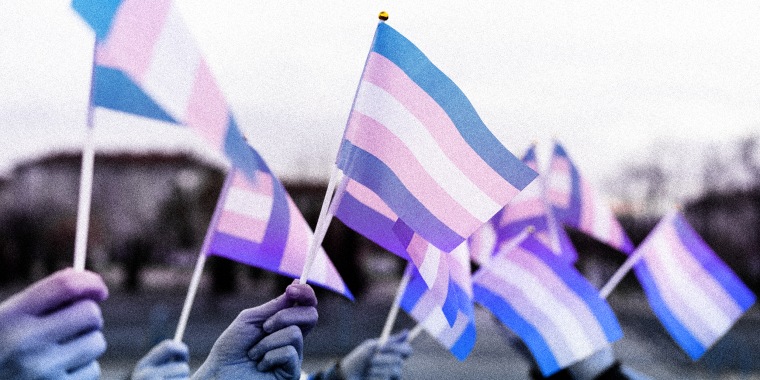We live in a world where trans people not only feel unwelcome, but also unsafe.

There are only two “special days” on the Western calendar devoted to recognizing transgender people: one to show our visibility and the other to remember those we’ve lost over the previous year. We commemorate Transgender Day of Remembrance on Saturday, when trans people in cities and towns all over the world will meet in somber vigils where the names, ages and locations of trans people who were murdered this past year are read aloud.
To be a member of the trans community is to be intimately familiar with death.
To be a member of the trans community is to be intimately familiar with death. When I first came out as trans in 2016, I quickly became friends with a younger trans woman who later took her own life. The risk of death or losing a friend or loved one seems to be ever present for trans people, and this year a record 47 trans people have been lost to violence.
The number of trans people murdered has grown each year over the last decade. At the same time, we’re seeing a simultaneous growing chorus of anti-trans objectors trying to poke holes in the statistics.
A common anti-trans refrain includes a makeshift calculation that takes the number of murdered trans people and divides that number by estimates of the size of the U.S. trans population to infer that statistically trans people are actually safer than the general population.
This argument falls apart when you consider that most trans victims of violence are not initially reported as trans in police reports, with many departments instead using language like “a man in women’s clothes” in news releases. This adds an extra layer of verification on the part of local news organizations when confirming the identities of trans murder victims. While improvements in this reporting have happened in recent years (and is likely the primary cause of the increase in confirmed reports of trans victims), the gutting of local news infrastructure means the full extent of anti-trans violence is likely to never be fully realized.
Another anti-trans argument points out that we can never know if a murder victim was actually killed because they were trans or for some other reason. This is true, at least in part, but misses the full picture. We know trans people are much more likely to live in poverty than the general population. Trans people are chronically unemployed or underemployed due to discrimination, and poverty is a large predictor of risk to violence.
The gutting of local news infrastructure means the full extent of anti-trans violence is likely to never be fully realized.
But both of these arguments fail to capture the full scope of trans lives and our experiences with violence. In my city, Washington, D.C., one of the most liberal places on the planet, a trans woman was beaten and stabbed by a man and two women at a laundromat. The attackers took turns punching and kicking her. Numerous trans women have been murdered over the recent years in greater Washington, and in 2019, an armed man threatened three trans women outside a Washington LGBTQ shelter that largely served trans sex workers. (Shelter services were drastically cut earlier this year after the city declined to renew a grant.)
That’s just in my city, which is allegedly one of the safest places for my people to live in, having long had nondiscrimination protections enshrined in law. Combined with an extended conservative media campaign against trans people in general, the end result is an America in which trans people not only feel unwelcome, but also unsafe.
This is, in the end, the entire point of anti-trans activism, even those doing back-of-the-envelope math to naysay trans murder statistics. None of this actually helps trans people in any way. Instead, trans people need protection, both in life and in law.

